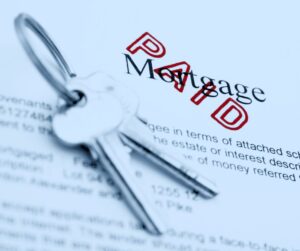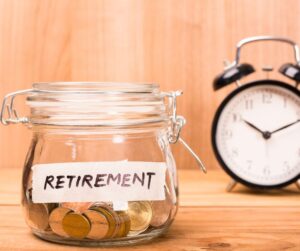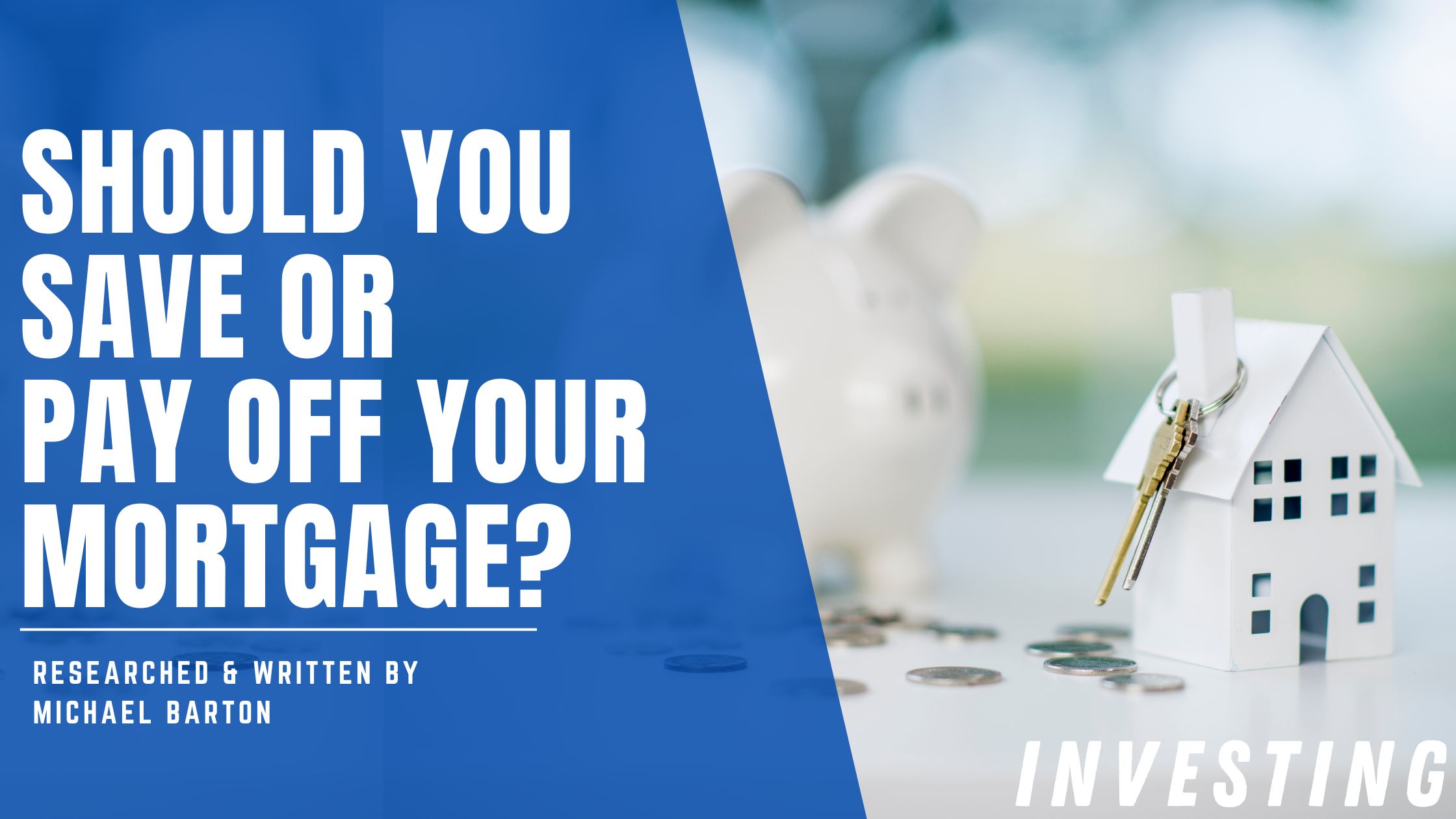You’re in a position to save or pay off your mortgage – but where is your money better placed? Financial Advisor Michael Barton helps you ask the right questions…
During my time as a financial advisor, one of the most common questions that clients asked was if they should pay off their mortgage or save. Conventional wisdom says pay off the mortgage. The answer is rarely as clear-cut.
In this article, I examine the pros and cons of saving vs paying off your mortgage, and provide a simple litmus test to help you decide which is best for you in your current circumstances.
20-Second Summary
Paying off your mortgage early could be the best decision you take.
However, before you do, there are many considerations to make.
It’s vital to build and maintain a sufficient emergency fund first. With this cushion in place, you can consider all options for your savings. By answering seven questions, you’ll make the right decision for your unique circumstances when you ask the big question – “Should I save or pay off my mortgage?”
Benefits of Paying Off Your Mortgage

If you are like most people, a mortgage is the biggest debt you are likely to have. Even though it’s often cheaper than paying rent, it will be costing you a king’s ransom in interest:
Just imagine if you didn’t have to pay all that interest. What could you do with an extra £20,000, £30,000, or £40,000 over the next 25 years?
The earlier you can pay off your mortgage, the better off you will be. Not only will you save on the interest you’re paying, but you won’t have your monthly mortgage payment to make, either.
With no mortgage payments to make, managing your finances will be easier. Saving will be easier. The financial stability this brings can be life-changing. As can the ability to save toward your future without a mortgage debt hanging over you.
How to Pay Off Your Mortgage Early
There are several ways to pay off your mortgage early. These include:
Shortening the Term of Your Mortgage
By shortening the term of your mortgage, you reduce how many years you will be making mortgage payments. This could save you a considerable amount of interest over the life of your mortgage, but would mean making higher payments.
If you find you can’t keep up with these higher payments, it could be expensive to revert to a longer term – or you could risk having your home repossessed.
Remortgaging
If you’re on a fixed-rate mortgage, at the end of the fixed-rate period you’ll need to decide whether to move to your lender’s standard variable rate (SVR) or remortgage to a cheaper fixed-rate deal.
By continually remortgaging at the end of each fixed-rate period, you could save tens of thousands in interest.
This won’t mean you will pay off your mortgage early – unless you save the difference between the SVR payments and your fixed-rate payments and use these savings to pay lump sums off your mortgage.
By doing this, you could drastically reduce how long you are making mortgage payments.
Getting an Offset Mortgage
An offset mortgage links your mortgage to your savings account with the same bank/lender.
In this type of mortgage, the lender deducts the amount you hold in your savings account from the amount you owe on your mortgage. You pay interest on what’s left, but won’t earn any interest on your savings. Your monthly mortgage payments will be less.
Sounds great, doesn’t it? There are a couple of disadvantages to consider, though. First, as well as receiving no interest on your savings, the mortgage interest rate is often higher with this type of mortgage.
Second, if you withdraw any money from your savings, this will increase your mortgage payments.
Overpaying Each Month
If your mortgage terms and conditions allow, you could consider overpaying each month. This can make a huge difference to your finances. Here’s how much a £200 overpayment each month could save you:
- On a £100,000 repayment mortgage with a 25-year term, you would pay off your mortgage after 15 years, and save £32,479 in interest.
- On a £200,000 repayment mortgage with a 25-year term, you would pay off your mortgage after 19 years, and save £41,841 in interest.
There are other ways to overpay, too. You could, for example, round up your mortgage payments to, say, the nearest £100. Instead of paying £532, pay £600. This will reduce the length of time it takes to repay your mortgage loan and reduce the amount of interest you pay over the mortgage term.
Paying off a lump sum
Have you received an unexpected windfall, or a bonus from work? Do you have money sitting in a savings account earning little interest?
Paying a lump sum off your mortgage will reduce the amount you owe and the total interest you pay will be less. However, your mortgage payments will remain the same, meaning you will pay off the mortgage sooner.
The Benefits of Saving Instead of Paying Off Your Mortgage
While saving so much in interest and becoming mortgage free so much sooner are compelling reasons to pay off your mortgage, you might do better to make regular payments into or keep a lump sum in a savings account.
If you can earn a higher interest rate than you are paying on your mortgage, this would definitely make sense.
It’s also crucial that you have an emergency fund. If you don’t have savings right now, I would highly recommend that you save as much as you can to create an accessible cash fund to cover you for unforeseen events.
Most advisors will suggest that you try to maintain an amount equivalent to three months’ income readily available to you. Knowing you have this cushion is liberating, too. It removes much of any financial pressure that a broken boiler or loss of your job would bring.
How to Save & Maintain an Emergency Fund
There are many types of accounts that you can use to save an emergency fund, but it must be in cash. Don’t be tempted to invest it in the stock market to get a better return. Sod’s Law says you’ll need to withdraw it at the wrong time, when share prices are low.
You could save into:
- An easy access account that lets you withdraw money instantly without penalty.
- A notice account that allows you to withdraw money without penalty provided you give a pre-determined notice of withdrawal (these usually pay a higher rate of interest than easy access accounts).
- Fixed rate bonds, in which your money is tied up for a pre-determined period. These usually pay an even higher rate than notice accounts, though you will typically forfeit any interest if you withdraw before expiry.
- Cash ISA accounts in which you can deposit up to £20,000 in the current tax year. You won’t pay tax on the interest, and you retain instant access to your cash (unless you choose a fixed cash ISA).
Should You Save Toward Your Retirement Instead of Paying Off Your Mortgage?
This is a challenging question. The answer very much depends upon your circumstances.

A general rule of thumb is that you should start saving towards your retirement as early as possible. The power of compounding your investment returns really can make a big difference: you’ll earn interest on the interest.
The longer your money is invested into a pension scheme, the more it is likely to earn. Plus, any money you invest in a pension scheme benefits from tax relief – and who likes to pay tax?
However, there are a couple of drawbacks that you should consider before ploughing your spare cash into a pension fund instead of saving/investing it elsewhere or using it to pay off your mortgage.
First, once invested into a pension fund, you cannot access your money. It’s locked away until you retire.
Second, you don’t know what tax you will pay on the income from it when you do retire – and all income from a pension is treated as taxable income (unlike income from an ISA, which is tax-exempt).
If you are considering investing in a pension scheme, you should also consider your health as well as any current pension funds you hold.
Should You Use Your Tax-Free Pension Sum to Pay Off Your Mortgage?
If you are nearing retirement and have a private pension, you’ll have the option of taking up to 25% of your pension fund as a tax-free cash lump sum.
One of the choices you have is to pay off your mortgage with this cash. Doing so will reduce your monthly expenses and make budgeting in retirement much easier.
It’s a no-brainer, surely?
Not quite. Before using this cash windfall to pay off your mortgage, you should:
- Ensure that the income from your pension will be enough to live off after taking the lump sum
- Pay off more expensive debt first
- Make sure to maintain an emergency fund
Be Wary of Early Repayment Penalties
A word of warning here. Before you make overpayments or knock a lump sum off your outstanding mortgage, check with your lender that you won’t incur any fees or penalties by doing so.
The terms and conditions of mortgages vary widely. Some will allow you to overpay without penalty. Others will allow you to pay off a lump sum each year. If your mortgage levies penalties for early repayments, you could end up worse off.
7 Questions to Ask Yourself Before Overpaying Your Mortgage
Whether you should save or pay money off your mortgage balance is a decision that is unique to you, because your financial circumstances are unique. The choice cannot only be based on the numbers, either. It’s also about how you feel about saving versus paying off the mortgage.
You’ll need to consider your existing debts and savings, and the interest you are charged and receive. You’ll also need to think about how you would cope financially if the unexpected should happen.
I’ve found that answering the following seven questions will provide a good steer to the right decision:
1. Have you got sufficient emergency funds?
If not, save one before paying down your mortgage.
2. Do you have more expensive debts than your mortgage?
If you do, paying these off first will save you more in interest payments.
3. How does the interest rate on your savings compare?
If it is higher than your mortgage interest rate, then you are quids in. If less, could you earn more by rearranging your savings accounts? If not, then it might be wise to reduce your mortgage by paying off a lump sum.
4. Will you be penalised for overpayments on your mortgage?
You’ll need to check this, and calculate if making overpayments/lump sum payments will cost you more than they save.
5. Are you saving into a pension?
Look to the future. Savings into a pension scheme today could help you retire earlier.
6. Could you benefit from an offset mortgage?
If your lender offers offset mortgages, it might be better to switch to this than paying off a lump sum. You’ll maintain access to cash, and reduce the interest payable on your mortgage.
7. How do you feel about saving versus paying off your mortgage?
Is it more important to you to save now? Here’s what I call the sleep test: do you feel more comfortable with savings and investments in your locker, or does a rapidly declining mortgage allow you to sleep more easily?
Start Saving Today
I cannot stress how important it is to get into the savings habit. It is the key that unlocks financial freedom and a bright future. This is why I recommend that you budget to save first and spend second.
If you find it challenging to save, a great place to start is taking the 1p Challenge. With savings behind you, your financial choices will become more abundant – including whether to pay off your mortgage early.

